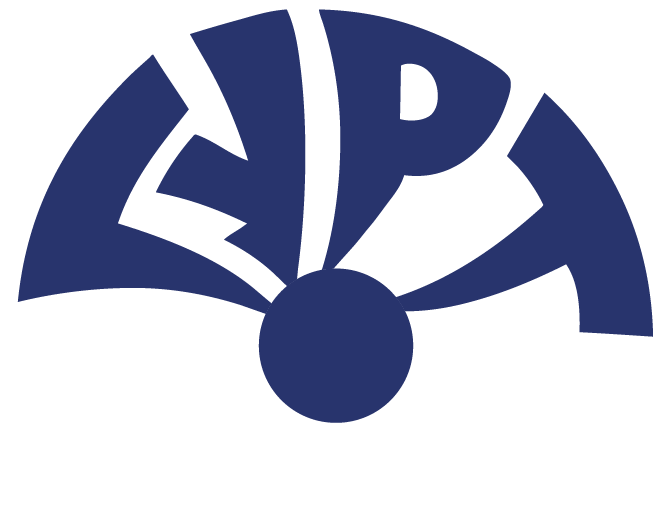


National consultant on SDGs budget tagging in Ukraine, UNDP
09.04.2021
|
Project name: |
Promoting strategic planning and financing for sustainable development on national and subnational level in Ukraine |
|
Post Title: |
National consultant on SDGs budget tagging in Ukraine
|
|
Country / Duty station: |
Ukraine, Kyiv, home-based |
|
Expected places of travel (if applicable): |
In case travel is requested by UNDP, logistics arrangements and travel costs of the Consultant to be covered by the project |
|
Starting date of assignment: |
19 April 2021 |
|
End date (if applicable):
|
01 October 2021 |
|
Management arrangements: |
Reporting to the Project Manager |
|
Selection method: |
Two-step procedure with the highest number of points in a combined assessment of both technical qualifications and the price proposal |
|
Payment arrangements: |
Lump Sum (payments linked to deliverables) |
Background
At the United Nations Sustainable Summit held in September 2015, 193 UN Member States adopted the 2030 Agenda for Sustainable Development, operationalizing 17 Sustainable Development Goals (SDGs) and 169 specific targets.
The UN Joint SDG Fund is an inter-agency, pooled mechanism for strategic financing and integrated policy support. The Fund supports programmes that work across all 17 SDGs and cross-cutting areas so programme countries can accelerate progress towards attaining the SDGs and the 2030 Agenda. In doing so, the Fund is committed to forge paths and partnerships that unlock public and private capital for the SDGs at scale.
Following the 2020 call of the Fund, more specifically its Component 1: Reinforce the SDGs financing architecture, UNDP Ukraine as the lead agency, together with the resident country agencies WHO and UNICEF, and the non-resident agency UNECE, have been selected to implement the initiative Promoting strategic planning and financing for sustainable development on national and regional level in Ukraine. This Joint Programme, which will be implemented over 24 months, outlines an integrated response to the need of the Ukrainian government to optimize resource allocation towards national development ambitions and their alignment with the SDGs agenda. It builds on two outcomes, which individually frame engagement and outputs at national and sub-national level:
Outcome 1: Ukraine´s national SDGs planning and financing architecture is improved;
Outcome 2: Decentralized SDGs development planning and financing architecture is improved at regional level.
The implementing agencies (UNDP, WHO, UNICEF, and UNECE) will be individually responsible for specific activities under the two respective outcomes. Taken together, the Joint Programme will result in better ways of managing existing – and potential – finance flows for strategic change to enhance alignment of available resources to long-term development priorities and achieving the SDGs in Ukraine. Promoting and supporting establishment of Integrated National Financing Frameworks (INFFs) is central to this ambition. Additional methodologies and tools that will be employed include Development Finance Assessment, RIA+, Budgeting for SDGs, PPP legal and regulatory frameworks review, systems for public strategic planning, health expenditure review, among others.
As lead Convening/lead agency for the Joint Programme, UNDP is responsible for the programme’s operational and programmatic coordination. Moreover, UNDP is responsible for preparation and consolidation of the programme’s reporting, provided by the other participating agencies, and for submission to the UN Joint SDG Fund Secretariat (through the RCO).
As implementing agency, UNDP is responsible for activities related to Development Finance Assessment, Budgeting for SDGs and activities focusing on review and strengthening of strategic planning and budgeting processes (at national and regional level). The activities have been designed in close dialogue with the UNDP Istanbul Regional Hub, which will provide technical guidance and support. The activities will entail direct and high-level engagement with line ministries and national authorities, International Financial Institutions, and development partners.
Implementation of SDGs require involvements of various stakeholders at different tiers of government and is necessary to tag the budget code for each goal and indicator at the national, oblast and local municipalities level. To tag the budget code it is necessary to prepare SDG budget tagging system to track budget allocations and actual expenditures by national policies and targets (SDG budget tagging for SDGs and SDG indicators).This will help in establishing mechanism to report and monitor the physical and financial progress on SDGs responsive planning and budgeting at all levels of the government.
In this context, UNDP is recruiting a professional with relevant experience and track record for the position of a National consultant for conducting analysis of SDGs budget tagging on three levels of Government in Ukraine. The incumbent will promote UNDP’s mandate as a gender-responsive organization with zero tolerance to any kind of discriminatory and abusive behaviour, including sexual harassment, sexual exploitation and abuse.
Main Objectives of the Assignment
The main objective of this assignment is to conduct SDG based budget/program tagging compatible with the existing national economic, budgetary and public finance management system.
Specific objectives of the study are as follows:
a. To review best international practices for fiscal budget/program tagging for goal-wise allocation of fiscal budgets for SDGs sectors (at least, 3 country experiences).
b. To conduct SDGs budget tagging for SDGs and SDG indicators at three tiers of the government (National, Oblast, and Amalgamated Communities), implementations and documenting progress on status of SDGs implementation in Ukraine.
c. To discuss with key stakeholders (INFF WG, MoF, line ministries and other government agencies etc.) possible ways for establishment budget tagging system to track budget allocations and actual expenditures by national policies and targets.
d. Assess adequacy and limitations of the present practices and provide recommendations how to enhance SDGs budget tagging process based on the Analysis of the institutional environment and legal framework that governs public financing of the SDGs, Presidential decree and newly adopted statute of the Cabinet of Ministers of Ukraine.
e. Assess and develop a strategy and a workable guideline for SDG budget tagging (by each goals of SDGs) for all three tiers of the Government (National, Oblast, and Amalgamated Communities), and discuss the draft guidelines with key stakeholders in the country.
f. Develop a scorecard/matrix that will help to understand which budget/program code contributes to the achievement of which SDG, keeping in mind that certain programs would be contributing to more than one SDG and thus need a weightage base for coding/reporting purpose.
Deliverables
The timeframe and deliverables of the assignment are as follows:
|
No. |
Deliverables |
Tentative Timeframe |
|
Deliverable 1 |
- Develop detailed methodology and techniques for the SDGs budget tagging compatible with the existing national economic, budgetary and public finance management system |
10 working days (till 1 May 2021) |
|
Deliverable 2 |
- Review best international practices for fiscal budget/program tagging (at least, … county experiences, the countries will be advised by UNDP) - conduct SDGs budget tagging for SDGs and SDG indicators at three tiers of the government (National, Oblast, and Amalgamated Communities), implementations and documenting progress on status of SDGs implementation in Ukraine - Conduct discussion of the preliminary findings of the existing practices adopted for SDGs based tagging of budgets/programs and expenditure and understand ways for the effective and tangible improvements in the area - Assess adequacy and limitations of the present practices on SDGs budget tagging and provide recommendations how to enhance SDGs budget tagging process, based on the Analysis of the institutional environment and legal framework that governs public financing of the SDGs, Presidential decree and newly adopted statute of the Cabinet of Ministers of Ukraine. |
60 working days (till 1 August 2021) |
|
Deliverable 3 |
- Develop a strategy and a workable guidelines for SDG budget tagging (by each goals of SDGs) for all three tiers of the Governments (National, Oblast, and Amalgamated Communities) - Develop a scorecard/matrix that will help to understand which budget/program code contributes to achievement of which SDG, keeping in mind that certain programs would be contributing more than one SDG and thus need a weightage base for coding/reporting purpose - Present developed report with recommendations and SDGs budget tagging scorecard/matrix to the INFF WG |
30 working days (till 1 October 2021) |
Proposed payment schedule:
UNDP will provide payments upon provision of deliverables duly certified by UNDP in accordance with the table above. UNDP will be the ultimate authority to control the quality of work results and assess the Contractor’s performance during the assignment. The satisfactory completion of each of the deliverables shall be subject to the endorsement of the UNDP Project Manager. Payments are made in three tranches as per the Schedule of payments indicated in the table above.
In particular, the payment schedule will be as follows:
Deliverable 1 10%
Deliverable 2 50%
Deliverable 3 40%
Monitoring/Reporting Requirements
The consultant will work under overall guidance of UNDP Project Manager of the Democratic Governance team, and in close day-to-day coordination with the other project consultants. Work-progress reporting/monitoring meetings will be held with Democratic Governance Team Leader on a regular basis. UNDP will be the final authority to control the quality and evaluate the work. No reports or documents should be published or distributed to third parties without approval of UNDP.
The Consultant will duly inform UNDP of any problems, issues or delays arising in the course of implementation of assignment and take necessary steps to address them.
All reports and results are to be submitted to the UNDP in electronic form (*.docx, *.xlsx, *.pptx, and *.pdf or other formats accepted by UNDP). All reports and presentations shall be submitted in English.
Experience and Qualifications Requirements
Education
- Master’s / Specialist’s degree in public economics, sustainable financing, international relations and management, or related field. PhD is an asset.
Work Experience
- At least 5 years of proven experience of providing services (consultancy, development, design) to public institutions at national and international levels in the sphere of finance and economics;
- At least 5 years of proven experience in elaborating strategic documents, policy papers and policy recommendations, conducting policy research;
- Extensive knowledge and experience of public financing, confirmed by samples of personal publications, articles, reports, analysis or presentations (at least 3 samples provided);
- Experience in international financing, working with international technical assistance projects or UN Agencies and advisory support would be an asset.
Language (s)
- Excellent English writing, communication and presentation skills are required. Fluency in Ukrainian.
Competencies
Corporate competencies:
- Demonstrates integrity by modelling the UN’s values and ethical standards;
- Promotes the vision, mission, and strategic goals of UNDP;
- Displays cultural, gender, religion, race, nationality and age sensitivity and adaptability;
- Treats all people fairly without favouritism;
- Fulfils all obligations to gender sensitivity and zero tolerance for sexual harassment.
Technical Competencies:
- Ability to work under the deadline and deliver within the schedule;
- Ability to work on complex issues under changing environment;
- Demonstrates diplomacy and tact in dealing with sensitive and complex situations;
- Strong communication, interpersonal, analysis, and planning skills;
- Knowledge of sustainable energy and environment issues;
- Strong communications skills (written and oral).
Documents to be Included when Submitting the Proposals
Applicants shall submit the following documents (to be uploaded as one file):
- Personal CV or P11, including information about past experience in similar projects / assignments and contact details for referees (at least 3).
- A brief methodology (max. 1-2 pages) on how the applicant plans to approach and complete the assignment.
- Financial proposal that indicates the all-inclusive fixed total contract price supported by a breakdown of costs according to defined deliverables, as per template provided (in USD).
- Duly accomplished Letter of Confirmation of Interest and Availability using the template provided by UNDP.
- At least 3 samples of personal publications, articles, reports, analysis, or draft legislation documents in related field
Please apply via UNDP’s official web-site: bit.ly/3cTS5zM
Контакти
- bit.ly/3cTS5zM








Коментарі